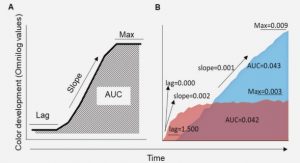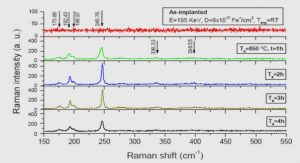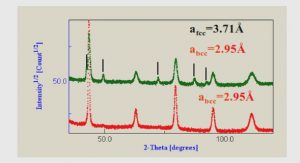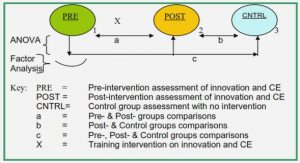Get Complete Project Material File(s) Now! »
CHAPTER TWO PHENOMENOLOGY: METHODOLOGICAL FOUNDATIONS OF THE STUDY
INTRODUCTION
In the previous chapter, chapter one, the researcher presented the summary of the research project. This chapter presents the methodological inferences of phenomenology as a research method and philosophy. Phenomenology was chosen based on Creswell (2014:252) and Finlay’s (2009:6) assertion that it is well suited to explore human phenomena that require understanding from thefirst-hand perspective of those who have experienced it by returning fresh and rich description of the of the experience. The word phenomena originated from the Greek word ‘phaenesthai’ which means to flare up or show itself. Therefore, a phenomenon is anything that presents itself to human consciousness (Moustakas 1984 in Dowling 2007:132). The term “phenomenology” was introduced by philosophers Kant, Hegel and later Brentano who intellectually motivated Husserl to developphenomenology (Dowling 2007:132). The main aim of this current research was to explore and describe the drug adherence lived experiences of HIV infected adolescents in Bulawayo, Zimbabwe in order to improve their therapeutic outcomes.
ORIGINS AND ESSENCE OF PHENOMENOLOGY
Phenomenology originated from the disciplines of philosophy and psychology in the 20th century against the reductionist approach in the natural sciences, which tended to explore human phenomena independent of the person experiencing the phenomenon (Patton 2002: 252; Lin 2013:2). Husserl sought to create a rigorous and unbiased approach to study things as they appear in human consciousness to enable the inquirer come face to face with the ultimate structures of consciousness or essence of the experience (Koch 1995:827). Husserl was interested in essences because he wished to turn philosophy into a process which could find logic, laws and absolute facts grounded in a perfect method (Owen 1994:3; Smith 2011:2). Husserl wished that this method of inquiry would have no crises of its foundations with no paradoxes arising along the way. He also desired that this method would be internally coherent and based on unquestionable self-evident truths (Husserl 1981; Owen1994:3). Phenomenology differs from other human science approaches like ethnography, grounded theory and ethno-methodology because phenomenology makes a distinction between the appearance and essence of things with emphasis on the first-personexperience (Wertz 2011:52) to be achieved by aiming for truth, logic and rigorous self-critical thought (Owen 1994:18).
Phenomenological inquiry starts with what appears primarily in the first person’s consciousness (non-verbal awareness) and studies the overall relations of meaning that appears through sensation to verbalised thought, in definitive experiences, turning abstract philosophical ideas and imperatives into “tangible” object-directed (intentional) awareness and deriving specific meanings from these experiences (Owen 1994:20; Wertz2011:52). Phenomenology concentrates on asking; “what the nature or meaning of something is” and demands the inquirer to look at the world “as we meet it in the immediate experience”. Unique to phenomenology is that it does notproduce empirical or theoretical observations; rather it offers an explanation of experienced time, body, space and human relations as we live them, altered by unique lived experiences (Van Manen 1990:184), which is the researcher’s key focus. Stewart and Mickunas (1990) as explained in Creswell (2014:58) declare that the “phenomenological method” is grounded in the following presuppositions:
A return to traditional tasks of philosophy which according to Owen (1994: 18) and Creswell (2014:58) is a return to search of wisdom. This reorientation arose as a result of philosophy becoming limited only to exploring human phenomena called “scientism” Wertz (2011:52) explains that Husserl developed phenomenological method on the premise that because human beings have the capacity for consciousness, human beings are fundamentally different from the material nature of the objects of science, thus requiring investigative approaches that are different from those existing within the physical sciences (Flood 2010:8).
A philosophy without presuppositions meaning phenomenology is founded on the assumption that investigating human phenomena requires suspension of all judgments but what is considered real (Creswell 2014:58). The suspension of pre-understanding is what Husserl calls “epoche” of natural attitude (Wertz 2011:124). According to Flood (2010:9), Husserl believed that in order to bring out the essential components of a particular lived experience, the inquirer needed to shed all their prior knowledge about the subject to prevent their personal biases and preconceptions from unduly influencing the findings of the inquiry (La-Vasseur 2003:409; Finlay 2009:6-7 and Groenwald 2004:6).
The intentionality of consciousness; which means that phenomenology is grounded on the assumption that consciousness is always directed “outwards” towards an object, implying that human reality is inextricably related to one’s consciousness of it (Creswell 2014:59; Wertz 2011:52) This suggests that consciousness is always “intentional” and indivisible from its object and not self-subsisting Husserl (1929/1973) as explained in Le-Vasseur (2003:411).
The refusal of the subject-object dichotomy, which means that the reality of an object is only perceived within the “meaning of the experience” from an individual’s perspective. Creswell (2014:59) explains that informed by the presupposition of intentionality, Husserl rejected the notion of Cartesian dualism of subject-object differentiation. This gave rise to the notion of reality as perceived by one being constructed in and out of the interaction between oneself and the social as well as the cultural context of the world in which one exists (Crotty 1998 in Flood 2010:8; Van der Zalm and Bergum 2000: 212-214).
Definitions of phenomenology
Various scholars have defined the term phenomenology slightly differently and is not always used in reference to the tradition begun by Husserl in European philosophy during the 20th century (Wertz 2011:52). In psychology, the word phenomenology has been generally used to characterise any work in research, theory or practice that emphasises a first-person experience while in psychiatry its use denotes descriptive knowledge of symptoms of mental disorders (Wertz 2011:52). Despite the variant ways in which phenomenology is understood, it has become a credible approach for studying human consciousness and for clarifying the foundations of philosophy and science. This method has continued to influence scholars in various disciplines such as humanities and arts just to name a few (Wertz 2011:52). In this current study, phenomenology is used to refer to the approach to knowledge originated and strongly influenced by Husserl and other proponents who subscribe to his epistemological perspectives. In this regard, Wertz (2005:175) describes phenomenology as a low hovering, in- dwelling, meditative philosophy that glories in the concreteness of person-world relations and accords lived experiences with all its intimacy and ambiguity, primacy over the known. This view is further expanded by Wertz (2011:52) were phenomenology is explained as a knowledge discipline that investigates consciousness in both ordinary day life and in science, while emphasising the intentionality of consciousness, the self-transcending way that relates to other objects. In the context of this research, the focal object is articulating the phenomenon of having to adhere to ART regimen both as a client and adolescent. According to Patton (2002:104) “phenomenology asks for the very nature of a phenomenon, for that which makes a “some-thing what it is andwithout which itcould not be what it is”. While Dowling (2007:132) describes phenomenology as a rigorous and unbiased study of things as they appear in consciousness in order to arrive at their “essence”. In a like manner, phenomenology to Finlay (2006:6) is a “return to embodied, experiential meanings, through methods that are responsive to both the phenomenon and the subjective interconnection between the researcher and the researched; aiming for fresh, complex, rich descriptions of experiences as concretely lived”. While Polit and Beck (2014:267) see phenomenology as a method whose principal aim is to explore and understand people’s everyday life experiences, Streubert and Carpenter (2011:73) consider phenomenology as a science that explores and describes the appearance of things or phenomena. Therefore, in this regard, phenomenology refers to a descriptive human science methodology which seeks to pertinently explore and describe human phenomena in order to find hidden meanings and requires the researcher to assume an attitude of openness to let the unexpected meanings emerge (Mostert 2002:3-4).
Evolution of phenomenology
Phenomenology has its origins in psychology and philosophy. This evolution according to Streubert and Carpenter (2011:75) progressed through three main developmental phases namely the (1) preparatory phase, (2) German phase and the (3) French phase.
Preparatory Phase
The preparatory phase of phenomenology according to Streubert and Carpenter (2011:75) was given prominence by the works of philosopher and psychologist Franz Brentano (1838-1917) and his student Carl Stump (1848-1936). At this stage according to Cohen, Kahn and Steeves, (2006: 6-8) explain, Brentano wanted to make psychology the precursor to phenomenology, a scientific discipline, whilst Stump used experimentation to discover the connection between elements of human perception and thus founded experimental phenomenology. The primary focus at this point was mainly clarification of the concept of intentionality(see section 2.3.4).
German Phase
The two prominent leaders in this phase are Edmund Husserl (1857-1938) and Martin Heidegger (1889-1976) (Pringle, Hendry and McLafferty 2011:7). Husserl advocated for philosophy to become a pure science that would restore deeper contact with human concerns and thus fronted the idea that phenomenology should become the ideal foundation for all philosophy and science (Dowling 20017:131-132). The focus of the Husserlian phenomenology is epistemological, emphasising knowledge generation from lived experiences (Racher and Robinson 2003; 465). Husserl believed that everyday lived experience as perceived by consciousness was valuable and that consciousness should be the primary object of scientific inquiry and human knowledge development (Lopez and Willis 2004:727-728). Husserl’s student Martin Heidegger moved his idea that human consciousness equated to knowledge at a higher level Racher (2003) as explained in Dowling (2007:133). Dowling further went on to say that though Heidegger agreed with Husserl that phenomenology should focus on lived experiences, he did differ from Husserl on the latter’s insistence on describing rather than understanding lived experience. Heidegger thus promoted the idea that the focus of phenomenology should move from knowledge generation (epistemology) to interpretation and meaning (ontology) of lived experience. As explained by Koch (1996:827, McConnell-Henry, Chapman and Francis (2009:8) that the focus of phenomenology should be deriving meaning and understanding from those who have had a particular lived experience first- hand. The concepts that emerged during this developmental phase are essences, intuition as well as reduction or bracketing.
French Phase
The predominant leaders of the French phase of the phenomenological movement are philosophers Gabriel Marcel 1889-1973; Jean-Paul Sartre 1905-1980 and Maurice Merleau-Ponty 1908-1961. According to Treanor (2010:1-2), Marcel emphasised that philosophy should begin with concrete experiences rather than abstractions, while Sartre pursued philosophical reflection and literary creativity Flynn (2012:2-3) and Merleau-Ponty concentrated on analysing concrete human experiences, perceptions, as well as difficulties of human existence (Flynn2011:1-3). Furthermore, Merleau-Ponty is also acclaimed for championing the idea that human beings are their bodies and that because of lived experience, one cannot separate the mind from the body; and the object of a thought from the subject. The concept that emerged at this phase is embodiment or being-in-the-world.The phenomenological view of human nature evolved as the philosophical movement progressed and have come to influence the process of phenomenological research. The concepts that emerged are lifeworld, lived experience, consciousness, intentionality, essence, reduction, bracketing, embodiment, being in the world, intersubjectivity, being in the world with others and hermeneutic cycle.
Chapter one: Introduction and orientation of the study
1. Introduction
1.2 Background to the research question
1.3 Description of the study site
1.4 Statement of the research problem
1.5 Research question
1.6 Research aim and objectives
1.7 Paradigmatic perspective of the research
1.8 Research design
1.9 Research methods
1.10 Design trustworthiness
1.11 Ethical considerations
1.12 Limitations of the study
1.13 Structure of the thesis
1.14 Conclusion
Chapter two: Phenomenology; methodological foundations of the study
2.1 Introduction
2.2 Origins and essence of phenomenology
2.3 Phenomenological view of human nature
2.4 Transitions of the phenomenological movement
2.5 Focus of phenomenological investigations
2.6 Phenomenology as a research method
2.7 Motivation for selecting phenomenology
2.8 Conclusion
Chapter Three: Preliminary literature review
3.2 Impact of HIV and AIDS on adolescents
Chapter Four: Research design and methods
4.1Introduction
4.2 The research method and design
4.3 The nature of qualitative research
4.4 Population and sampling technique
4.5 The research instrument
4.6 Data collection
4.7 Data analysis
4.8 Ethical considerations
4.9 Criteria to establish quality and trustworthiness
4.10 Conclusion
Chapter Five: Data analysis
5.1. Introduction
5.2 General principles of qualitative data analysis
5.3. Fundamentals of phenomenological data analysis 115
5.4 Wertz’s (1983/2011) empirical psychological reflection
5.5 Conclusion
Chapter Six: Presentation of data with literature
6.1Introduction
6.2 Fieldwork experience of the researcher
6.3 Demographic profiles of respondents
6.4 Central story line, themes and categories.
6.5 Descriptive overview of treatment fatigue
6.6 Delay in Getting to Know Own HIV Status
6.7 Stigma
6.8 Disability (visual Impairment)
6.9 Lack of support
6.10 Religious beliefs
6.11 Conclusion 166
Chapter Seven: Relating emerging constructs to existing theories
7.1 Introduction
7.2 Relating wholeness to existing theories
7.3 Outcomes of the adolescents with regards to wholeness
7.4 Conclusion
Chapter eight: Summary, conclusions, recommendations and limitations
8.1 Introduction
8.2 Purpose of the study
8.3 Guiding research question
8.4 Research design and method
8.5 Findings, conclusions and recommendations
8.6 Limitations of the study
8.7 Recommendations for further study
8.8 Recommendations for theory development
8.9 Guidelines to improve HIV infected adolescents’ drug adherence
8.9.1 Increasing Adolescents’ mental resistance
8.10 Conclusions
GET THE COMPLETE PROJECT






